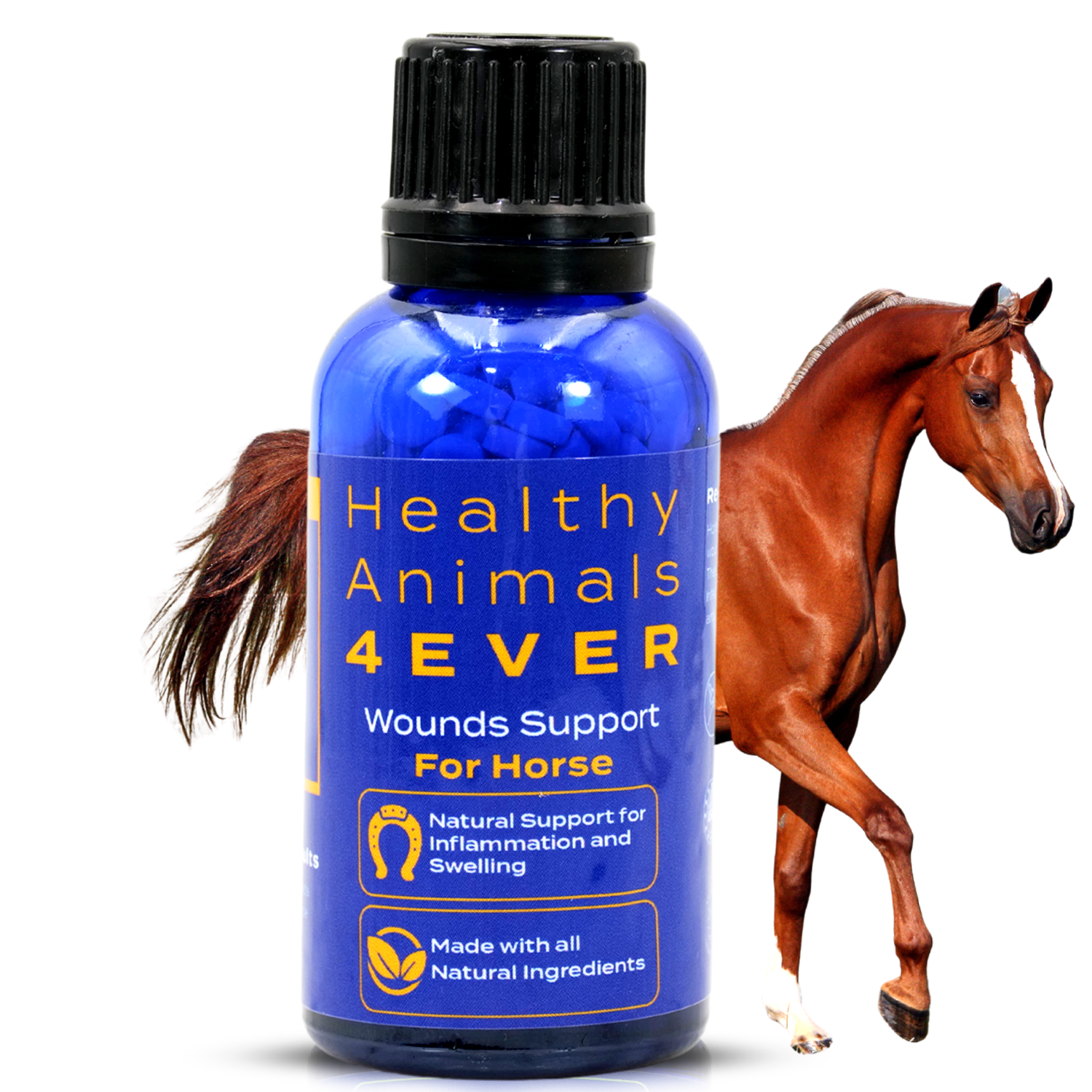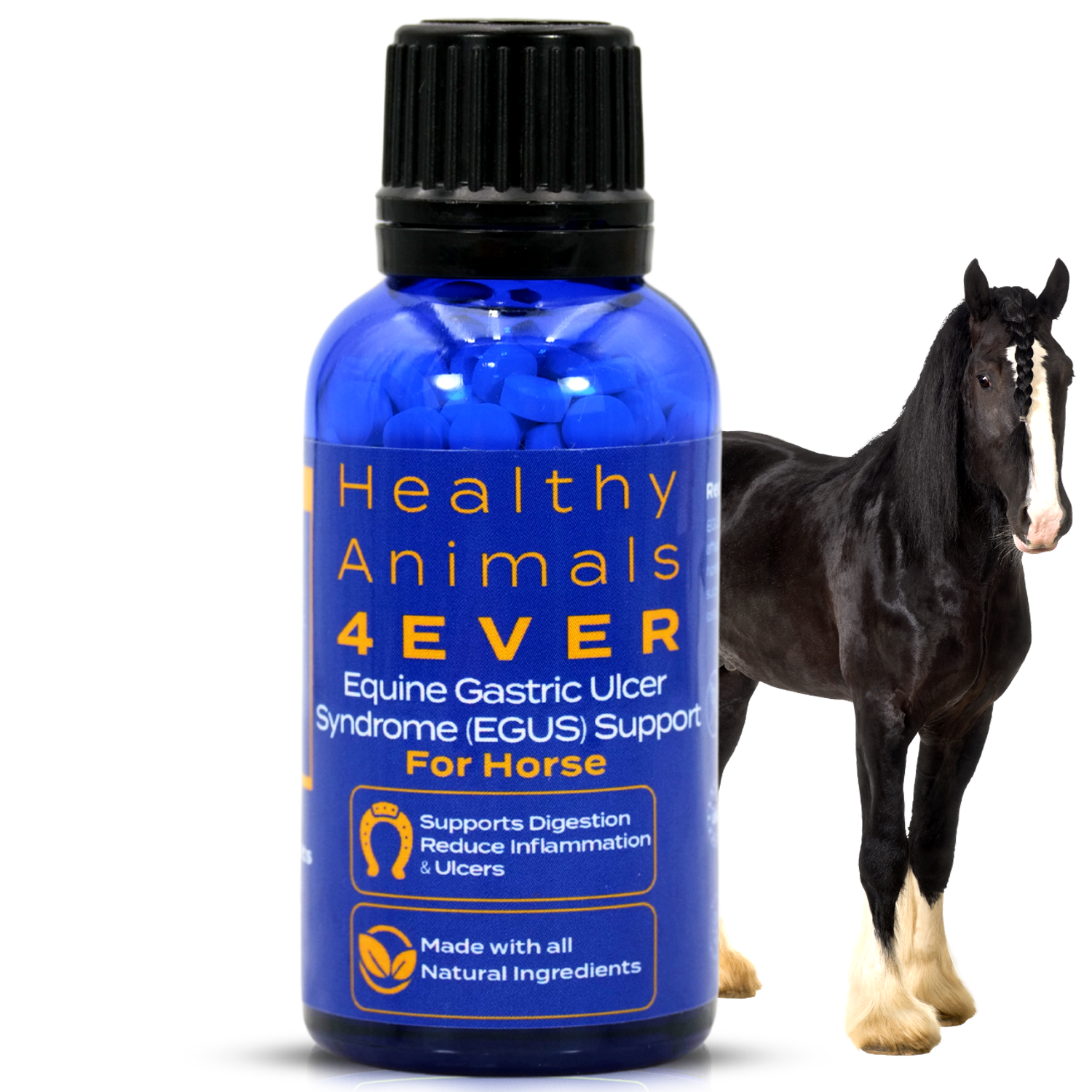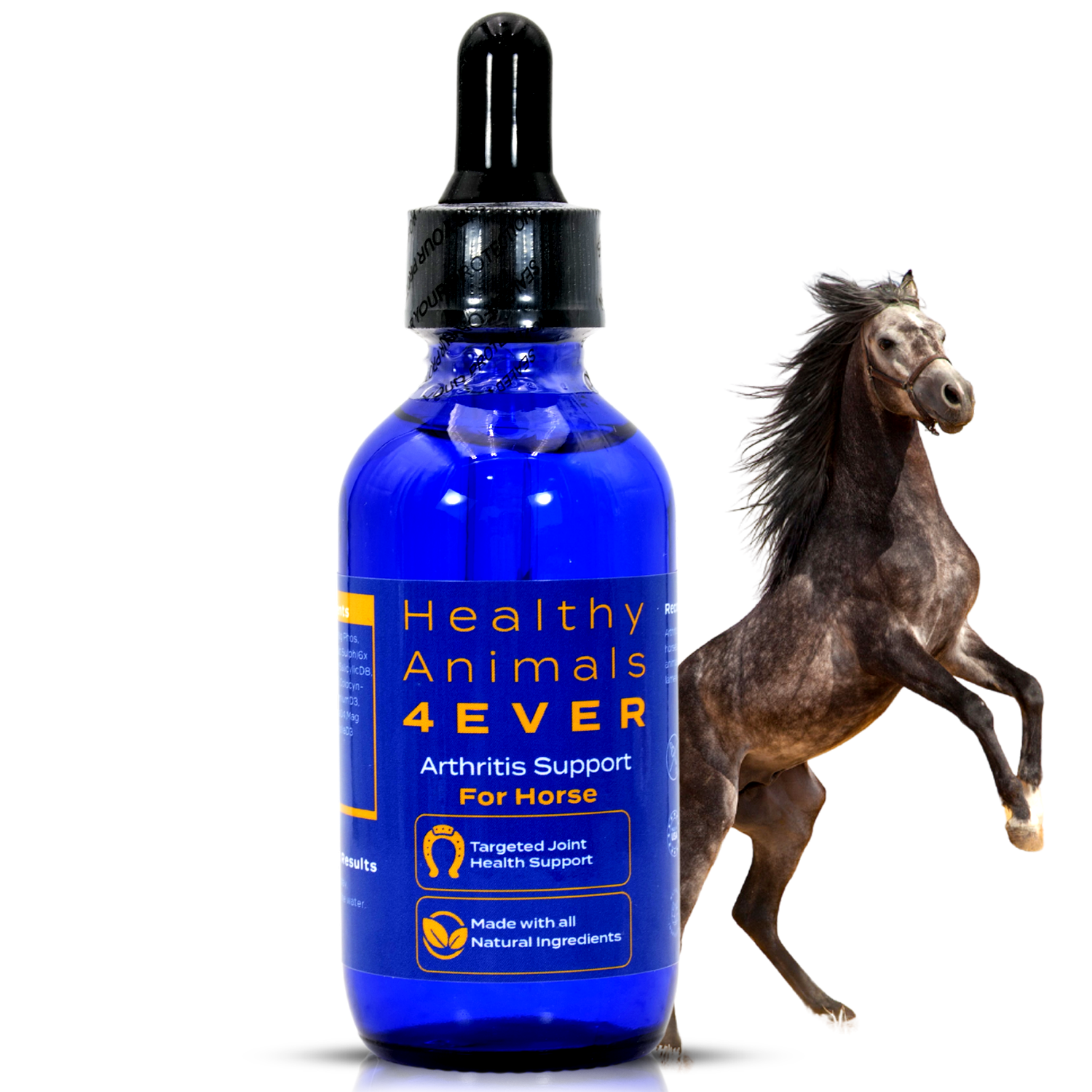Exploring the Essential Components of a Horse First Aid Pack
Horses are magnificent animals that require attentive care and regular monitoring to ensure their well-being.
While horse supplies encompass a wide range of products, one essential item that every barn or saddlebag should have is a horse first aid pack. In emergencies or sudden health issues, a well-equipped horse first aid pack can significantly impact the outcome and potentially save your horse's life.
This comprehensive guide will explore the significance of a horse first aid pack and its essential components and provide valuable insights on creating and maintaining an adequate one for equine emergencies.
When creating a horse first aid pack, it is important to include various essential components. These include basic first aid supplies such as sterile wound dressings, gauze pads, adhesive tape, scissors, tweezers, and antiseptic solutions or wipes for wound cleaning. Medications and topical treatments such as antiseptic creams, antibiotics, anti-inflammatory medications, and hoof care products should also be included. Emergency equipment such as a digital thermometer, stethoscope, flashlight or headlamp, and hoof pick are vital additions to the pack.

Understanding the Importance of a Horse First Aid Pack
The Role of First Aid in Equine Health:
Prompt and effective first aid can prevent further complications and reduce the severity of injuries or illnesses. And integrating natural and homeopathic remedies promotes holistic horse care.
Integrating natural and homeopathic remedies into your horse's first aid routine is a practical approach that aligns with the principles of holistic horse care. Natural remedies derived from plants and other natural sources offer a gentle yet effective way to support the body's innate healing mechanisms. They can help alleviate pain, reduce inflammation, support immune function, and promote well-being.
HORSE WOUNDS SUPPORT works by helping to stimulate the body's natural healing process, which supports the growth of healthy tissue and helps with inflammation.
By incorporating natural remedies into your first aid practices, you can enhance your horse's healing process while minimizing the potential side effects associated with synthetic medications.
Homeopathic remedies are a specific form of natural medicine. They are prepared through dilution and succussion, which enhances their energetic properties. Homeopathy stimulates the body's vital force, triggering a healing response. This type of remedies can address many equine health issues, including injuries, infections, digestive disorders, anxiety, etc. They offer a safe and non-toxic option for supporting your horse's well-being.
When using natural and homeopathic remedies in your horse's first aid routine, it's essential to consult with a holistic veterinarian or a qualified professional experienced in natural equine care. They can guide the appropriate remedies for specific conditions and offer dosage recommendations.

Additionally, it's crucial to thoroughly understand the remedies you are using and their potential interactions with other medications or treatments.
Remember, while natural and homeopathic remedies can be effective in many situations, there may be instances where immediate veterinary intervention is necessary. It's essential that you recognize the limitations of home care and seek professional assistance when needed.
A holistic veterinarian can collaborate with you, combining conventional and natural approaches to provide the best care for your horse.
Advantages of Having a Dedicated Horse First Aid Pack:
A dedicated horse first aid pack offers several advantages for owners prioritizing holistic care and well-being.
Quick response and immediate treatment using natural remedies during emergencies:
A well-equipped first aid pack allows for a swift response and immediate treatment in unexpected emergencies or injuries. You can provide timely relief to your horse with natural remedies, such as herbal wound cleansers, natural wound healing creams, and homeopathic remedies. Natural remedies can help soothe pain, reduce inflammation, and support the body's healing process, offering a holistic and gentle approach to emergency care.

Reducing reliance on artificial chemicals and advocating for a holistic approach to horse health:
You can reduce reliance on synthetic chemicals and medications by incorporating natural remedies into your horse's first aid pack. Many commercial products contain artificial ingredients that may have adverse effects or cause unnecessary stress to your horse. Opting for natural alternatives aligns with a holistic approach to horse health, focusing on supporting the body's natural healing abilities and minimizing potential harmful side effects.
Reducing stress and supporting the overall well-being of the horse:
When a horse experiences an injury or illness, it can be stressful and distressing for the horse and the owner. By having a dedicated first aid pack with natural remedies, you can provide immediate care and comfort, reducing stress levels for your horse. Natural remedies often have soothing properties and can promote a sense of calm and relaxation, supporting your horse's overall well-being during challenging times.

In addition to these advantages, a horse first aid pack encourages proactive and responsible horse ownership. It promotes preparedness and empowers owners to participate in their horse's health actively. Regularly checking and restocking the first aid pack ensures it remains up-to-date and ready for use whenever an emergency arises.
Essential Components of a Horse First Aid Pack
Basic First Aid Supplies:
- Sterile wound dressings, gauze pads, and adhesive tape.
- Natural antiseptic solutions or herbal wound cleansers for gentle yet effective cleaning.
- Natural wound healing creams or salves are made with herbal ingredients.
Medications and Topical Treatments:
A dedicated horse first aid pack, a range of natural medications, and topical treatments to address common equine ailments are beneficial.
These alternatives can provide effective relief and support your horse’s healing process without the potential side effects associated with synthetic chemicals. Here are some examples:
- Homeopathic remedies for common equine ailments: Homeopathy offers a gentle yet powerful approach to addressing various health issues in horses. For example, Arnica montana is commonly used to alleviate bruising and muscle soreness resulting from injuries or exertion. Calendula is another popular homeopathic remedy known for its wound-healing properties. Including these remedies in your first aid pack provides immediate relief and supports the body's natural healing mechanisms.

- Herbal supplements for immune function and digestive discomfort: Herbal supplements can play a significant role in maintaining your horse's overall health and addressing specific concerns. Immune-boosting herbs like Echinacea and astragalus can strengthen your horse's immune system, helping them fight infections and stay healthy. In cases of digestive discomfort, herbs such as peppermint, chamomile, or marshmallow root can offer soothing and digestive support. Including these herbal supplements in your first aid pack ensures that you can provide holistic care and support your horse's well-being.
HORSE EQUINE GASTRIC ULCER SYNDROME SUPPORT It may help with inflammation and poor digestion.
- Natural anti-inflammatory creams or gels: Joint inflammation in horses is often associated with injuries or conditions like arthritis. Natural anti-inflammatory creams or gels containing arnica, aloe vera, or comfrey can relieve pain and swelling and promote healing. These topical treatments offer a gentle alternative to synthetic anti-inflammatory medications. They can be applied directly to the affected area.
HORSE ARTHRITIS PRODUCT may help with inflammation and pain associated with this degenerative joint disease without any adverse side effects.
Emergency Equipment:
In addition to medications and topical treatments, a well-equipped horse first aid pack should include essential emergency equipment. These items can help you assess your horse's condition, monitor vital signs, and provide immediate care.
Here are some essential emergency equipment items to consider:
- Digital thermometer for body temperature: Monitoring your horse's body temperature is crucial in assessing their overall health and detecting potential illnesses or infections. A digital thermometer allows for quick and accurate temperature readings. It enables you to track abnormal fluctuations, which may indicate fever or other health issues requiring immediate attention.
- Stethoscope for listening to heart and lung sounds: A stethoscope is an invaluable tool for assessing your horse's heart and lung health. You can identify any irregularities or signs of respiratory distress by listening to their heart rhythm, breathing patterns, and lung sounds. This information can help you determine the severity of the situation and communicate important details to your veterinarian.
- Natural insect repellents or fly masks to protect against insect-related issues: Insects, such as flies and mosquitoes, can be a common inconvenience for horses and may cause discomfort, irritation, and even transmit diseases. Including natural insect repellents or fly masks in your first aid pack protects against these pests. Natural repellents, often formulated with ingredients like essential oils or herbal extracts, can effectively deter insects while minimizing exposure to harmful chemicals.

Having these emergency equipment items readily available in your horse's first aid pack empowers you to assess your horse's condition and take appropriate action during emergencies or health concerns.
However, please note that proper training and guidance from a qualified veterinarian or equine professional are essential to ensure these tools' correct and effective use and accurate interpretation of the results.
You could also check the functionality of the equipment, ensure batteries are charged, and replace any expired or damaged items. It’s going to help you maintain a reliable horse first aid pack. This way, you can respond promptly and effectively during critical situations.
Building and Organizing Your Horse First Aid Pack
Choosing the Right Container:
- Opt for a sturdy, waterproof container to protect the supplies.
- Consider a design that allows for proper ventilation to maintain the integrity of natural remedies.
Creating a Detailed Inventory:
- List all components, including homeopathic remedies and herbal supplements.
- Check expiration dates regularly and restock as needed.
- Include emergency contact numbers for veterinarians experienced in natural and holistic care.
Organizing the First Aid Pack:
- Divide the pack into sections or compartments for easy access.
- Use labeled pouches or clear bags to categorize and locate items quickly.
- Keep a list of remedies and their specific uses for quick reference.
Tips for Effective Horse First Aid Management
Knowledge and Training:
- Attend workshops or courses on natural horse care and homeopathy.
- Learn about the principles of homeopathy and how to administer remedies.
- Understand when to seek professional veterinary assistance.
Communication and Documentation:
- Maintain a detailed health record that includes natural remedies used.
- Share relevant information with veterinarians knowledgeable about natural horse care.
Regular Check-ups and Preventive Care:
- Schedule holistic veterinary visits for routine check-ups and guidance: Regular check-ups with a holistic veterinarian are essential for maintaining your horse's overall health and well-being. These professionals specialize in natural and holistic approaches to equine care. During these visits, the veterinarian can assess your horse's condition, discuss natural care options, and recommend preventive measures based on your horse's needs.
- Implement preventive measures: Besides scheduling regular check-ups, taking proactive steps to minimize the risk of health issues is essential. This involves implementing natural strategies such as:
- Providing a balanced and nutritious diet: Ensuring your horse receives a diet rich in high-quality forage, supplemented with natural minerals and vitamins, can support their immune system and overall health.
- Regular exercise and turnout: Allowing your horse ample turnout time and engaging them in regular exercise promotes good circulation, muscle tone, and mental well-being.
- Proper hoof care: Regular trimming or shoeing by a qualified natural hoof care professional helps maintain hoof health and prevents common hoof issues.
- Natural parasite control: Employing natural parasites control methods, such as strategic pasture management, herbal dewormers, and fecal egg count monitoring, can help minimize the use of chemical dewormers.
- Environmental management: Providing a clean and well-ventilated living environment, minimizing exposure to toxins, and ensuring access to fresh, clean water contribute to your horse's overall health.
Conclusion:
In conclusion, a well-equipped horse first aid pack is indispensable for responsible horse owners. It ensures preparedness and the ability to provide immediate care during equine emergencies. By prioritizing natural care options and incorporating homeopathic remedies and holistic approaches, you can enhance your horse's well-being and promote a more sustainable approach to their health.
The components of a horse first aid pack should be carefully chosen, focusing on natural wound care, herbal supplements, and homeopathic remedies. By stocking your pack with high-quality products and regularly updating supplies, you can ensure you are ready to handle any situation.
Moreover, ongoing education and staying informed about natural care principles are crucial. A comprehensive understanding of natural care principles and the components of a horse first aid pack empowers you to make correct decisions and apply effective treatments when necessary, promoting the safety and well-being of your horse. Consultation with a holistic veterinarian or equine professional can provide valuable guidance and further enhance your understanding of natural care practices.
Make sure always to prioritize the health and safety of your horse. A well-stocked, natural-focused horse first aid pack acts as a safety net, enabling you to provide immediate relief, reduce stress, and support your horse's overall health. With proper preparation and a commitment to natural care, you are equipped to handle emergencies and ensure the longevity and happiness of your beloved equine companion.













